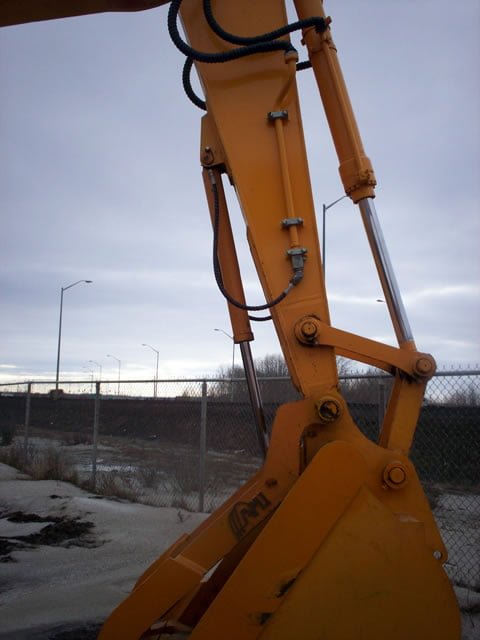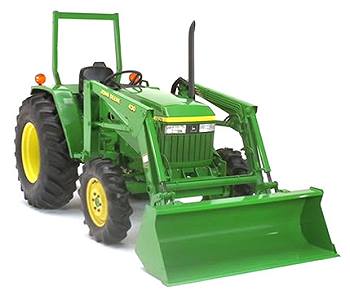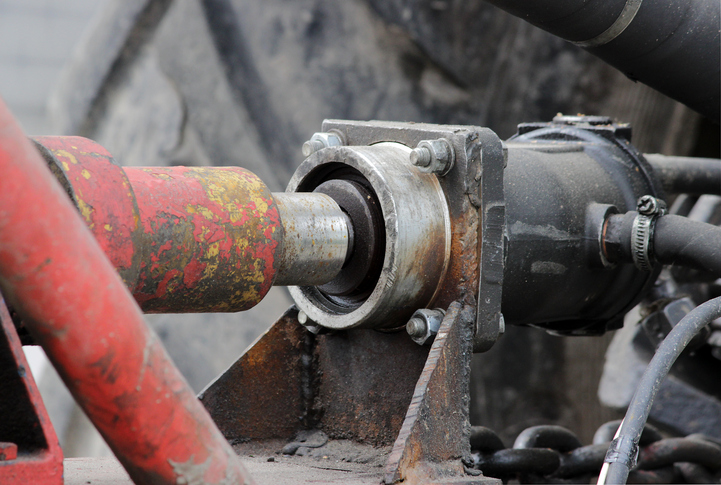One of these great advances of the past hundred years was the use of hydraulic force to help do work. Hydraulic force is simply using a compressed fluid, usually a light oil, to exert force on a mechanical linkage. There are a lot of advantages to using hydraulic force to do work. First, since it is a liquid, any hydraulic fluid is very easy to transport and store making hydraulic equipment relatively compact and simple. Also, hydraulic fluids can be pressurized to extremely high pressures allow them to be used to move very heavy loads and do a significant amount of work. Lastly, hydraulics have very few moving parts so they can last for a long time even in very harsh operating environments. So, how do hydraulics work?
How do hydraulics work?
Hydraulics work by relying on the simple principle that fluids are incompressible. That means no matter how much pressure you put on them, the fluid used in hydraulics will not compress and will occupy a fixed volume. This is an advantage because as your system carries extremely heavy loads and produces huge forces you don’t have to worry about failures or shifting of your equipment. Every hydraulic system includes a pump or device to pressurize the working fluid and hoses or conduits to transfer the fluid from the pump to the operational side of the equipment. Then, a cinder or hydraulic motor is used to turn the pressure of the working fluid into movement, and therefore work.
Why do hydraulic systems leak?
The main danger in a hydraulic system is a fluid leak. Since the system relies on the incompressibility of the working fluid, a leak in the system can cause serious problems. As fluid leaks out of the system, the pressure will be reduced allowing movement you do not expect in your hydraulics. Depending on your equipment and how it is used, this unexpected movement can cause serious problems with the operation of your equipment and even danger for the operators and those around it.
Since your hydraulic equipment is designed to work under very high pressures, leaks are not uncommon. Everywhere there is movement in your hydraulic system there must be a seal to keep the hydraulic fluid inside the system. These seals are placed around pump and motor shafts, as well as around hydraulic cylinders to retain the pressure of the hydraulic fluid and keep the system from leaking. Over time, these seals can become worn from use or shrink and become brittle from a lack of use. Both of these situations can create leaks in your hydraulic system.
How do I fix a hydraulic leak?
Replacing these seals can be an extremely tedious job and create downtime for your equipment costing you money in repairs and lost time. Fortunately, there is a better alternative to sealing your leaks and repair your hydraulic seals. BlueDevil Hydraulic Stop Leak has the ability to recondition and repair the seals in your hydraulic system from the Inside out. Simply add BlueDevil Hydraulic Stop leak to your hydraulic fluid reservoirs and run the system as usual to seal your leaks! BlueDevil Hydraulic Stop leak is an inexpensive solution to sealing your hydraulic leaks quickly and easily.
BlueDevil Products can be found on Amazon.com or at AutoZone, Advance Auto Parts, O’Reilly Auto Parts, NAPA, and other major auto parts retailers.
2 responses to "How Do Hydraulics Work?"
2 Comments
Leave a Reply
Related Articles




2 questions
1) I have a one to with a dump that oil shoots out cylinder when I raise the bed can this product fix that
2) I have a bucket truck that has four out riggers , one of the legs has a leak it uses hyien glacial blu hydraulic fluid product code 1043632 can your product be used with that type of fluid and if so how much would I mix to in with it
Thank you
Brian
Brian-
The BlueDevil Hydraulic Stop Leak is only intended for the rubber seals/gaskets in the system. The product is safe and compatible to use with the fluid you have described, and you will be using about one oz. of the product per quart of fluid in the system. Feel free to contact our technical support line at 888-863-0426 with any other questions.
Thank you!
-BDP